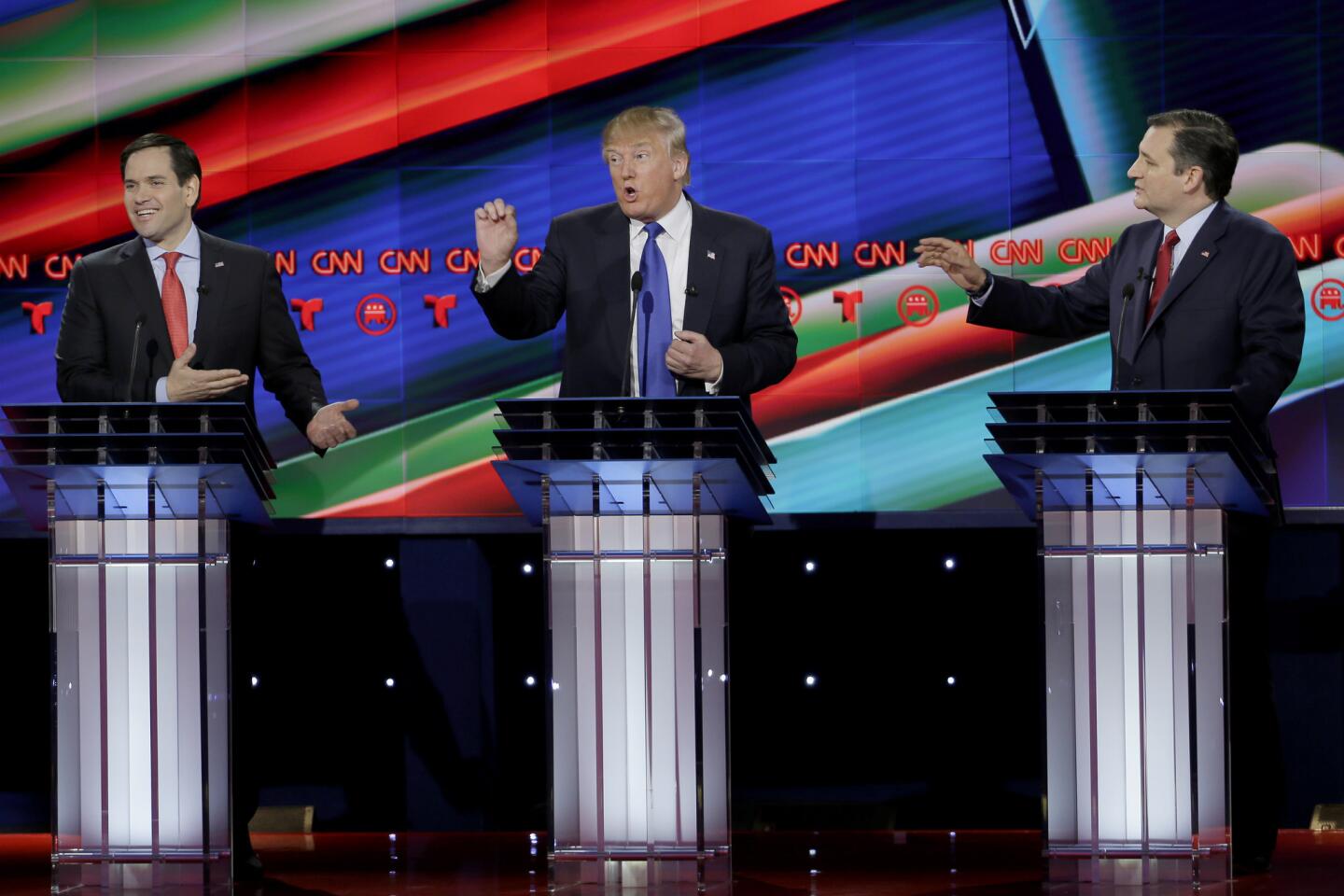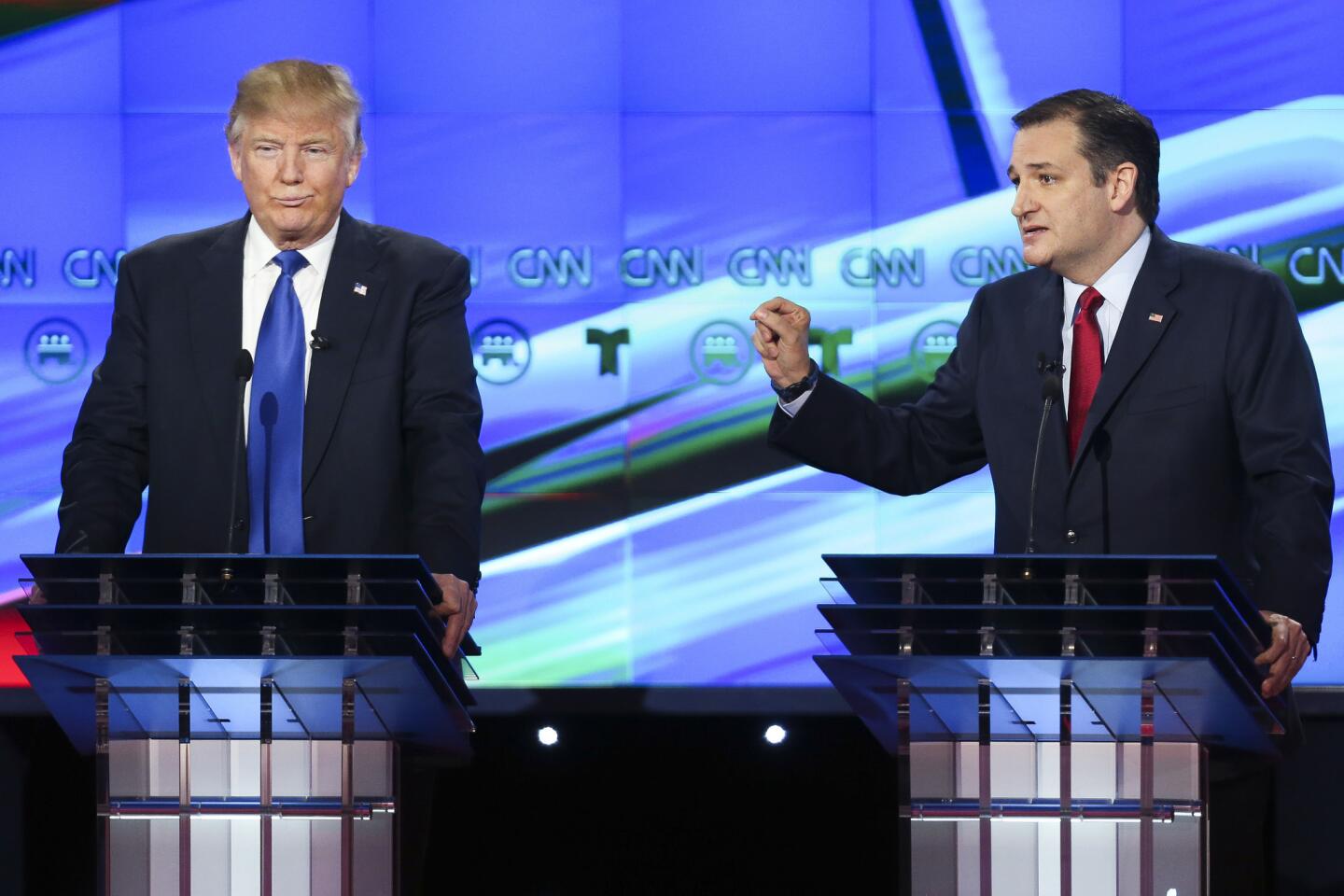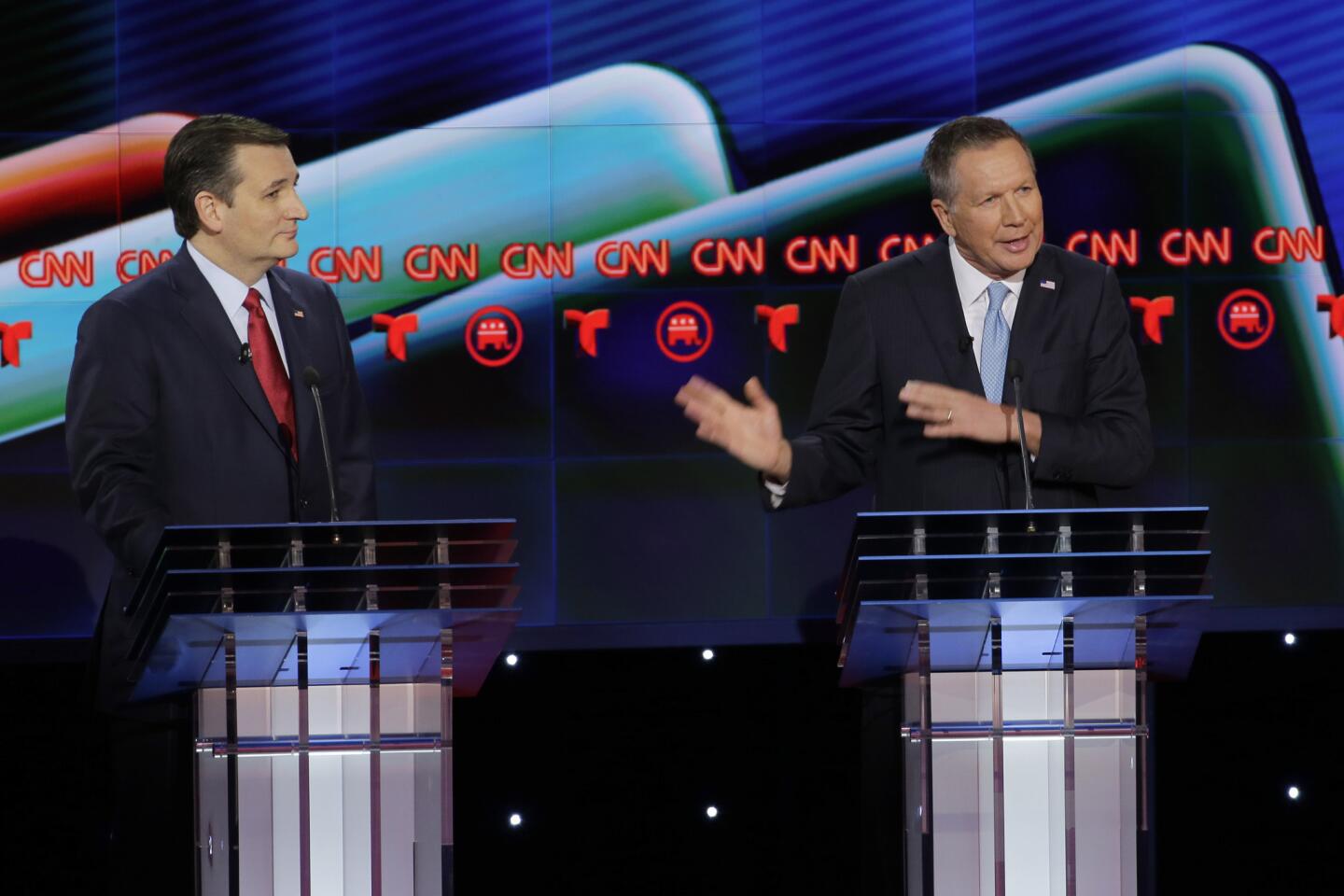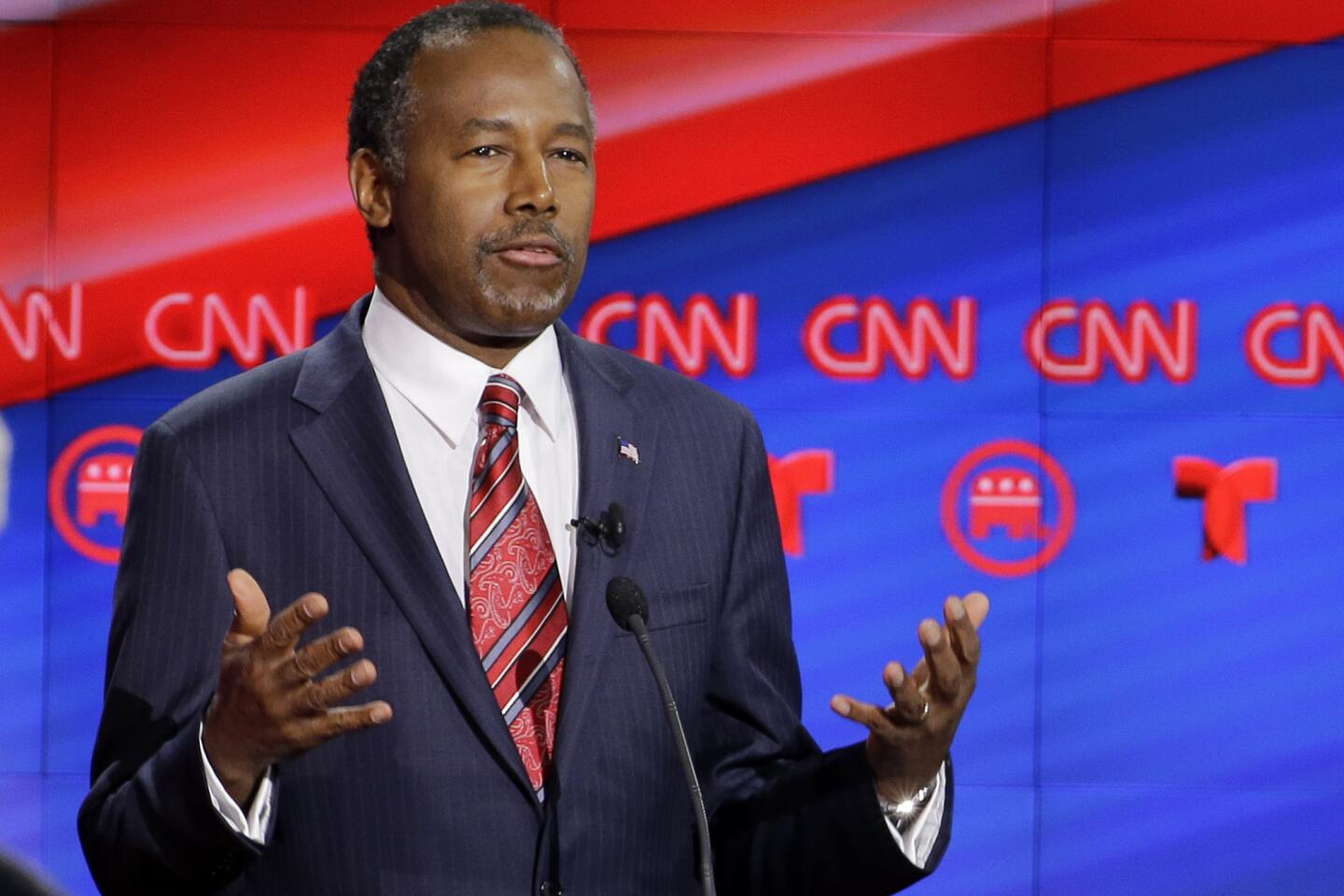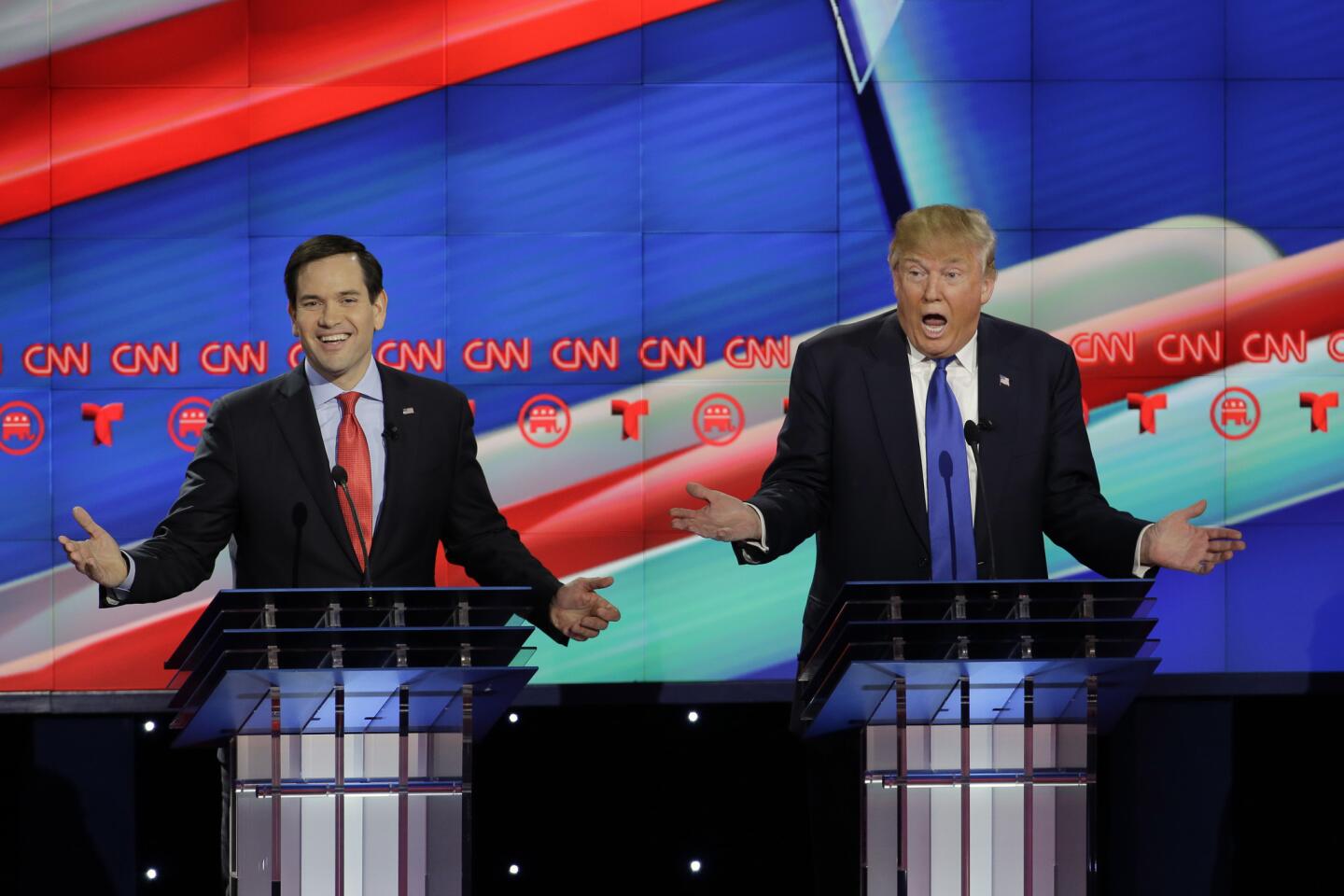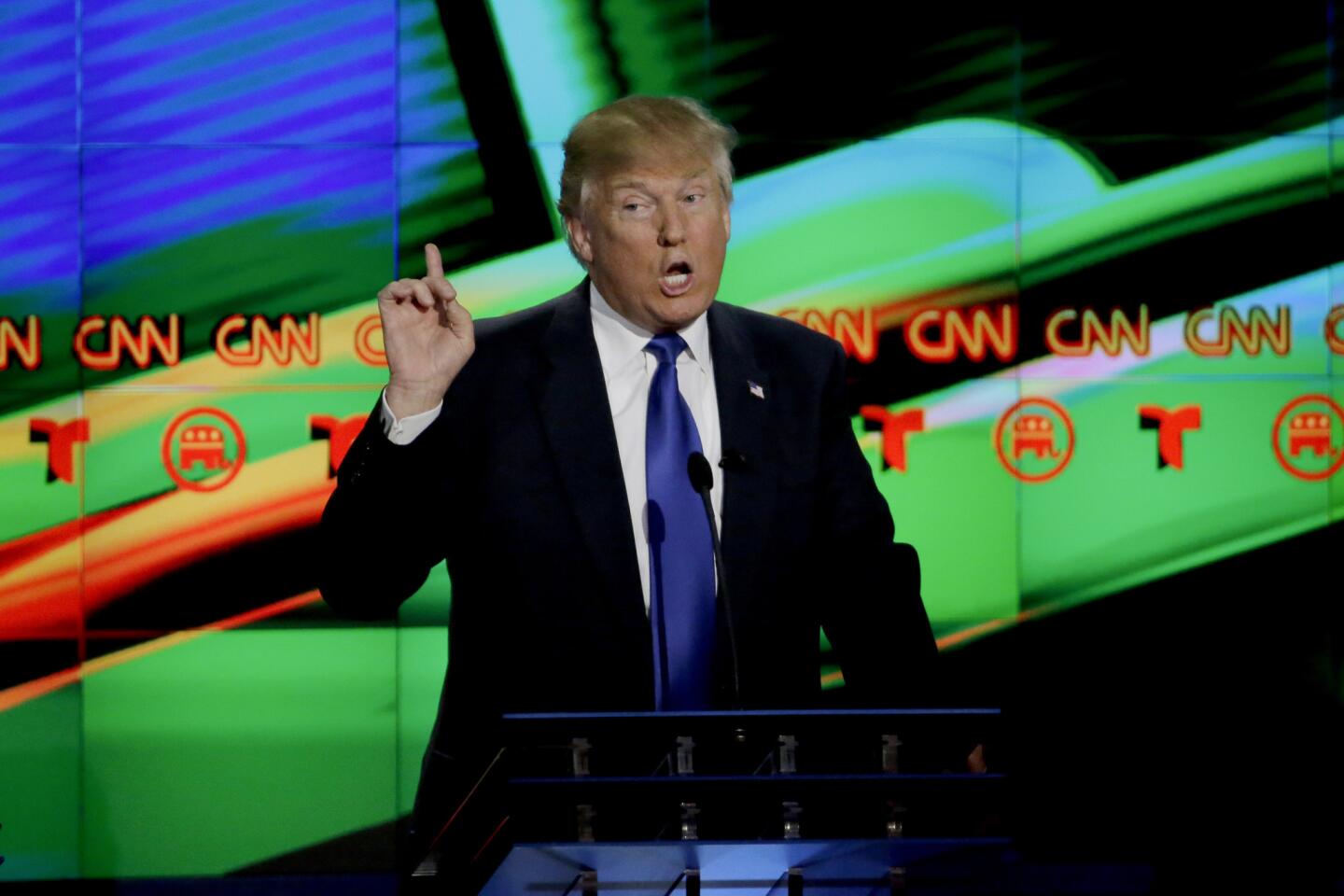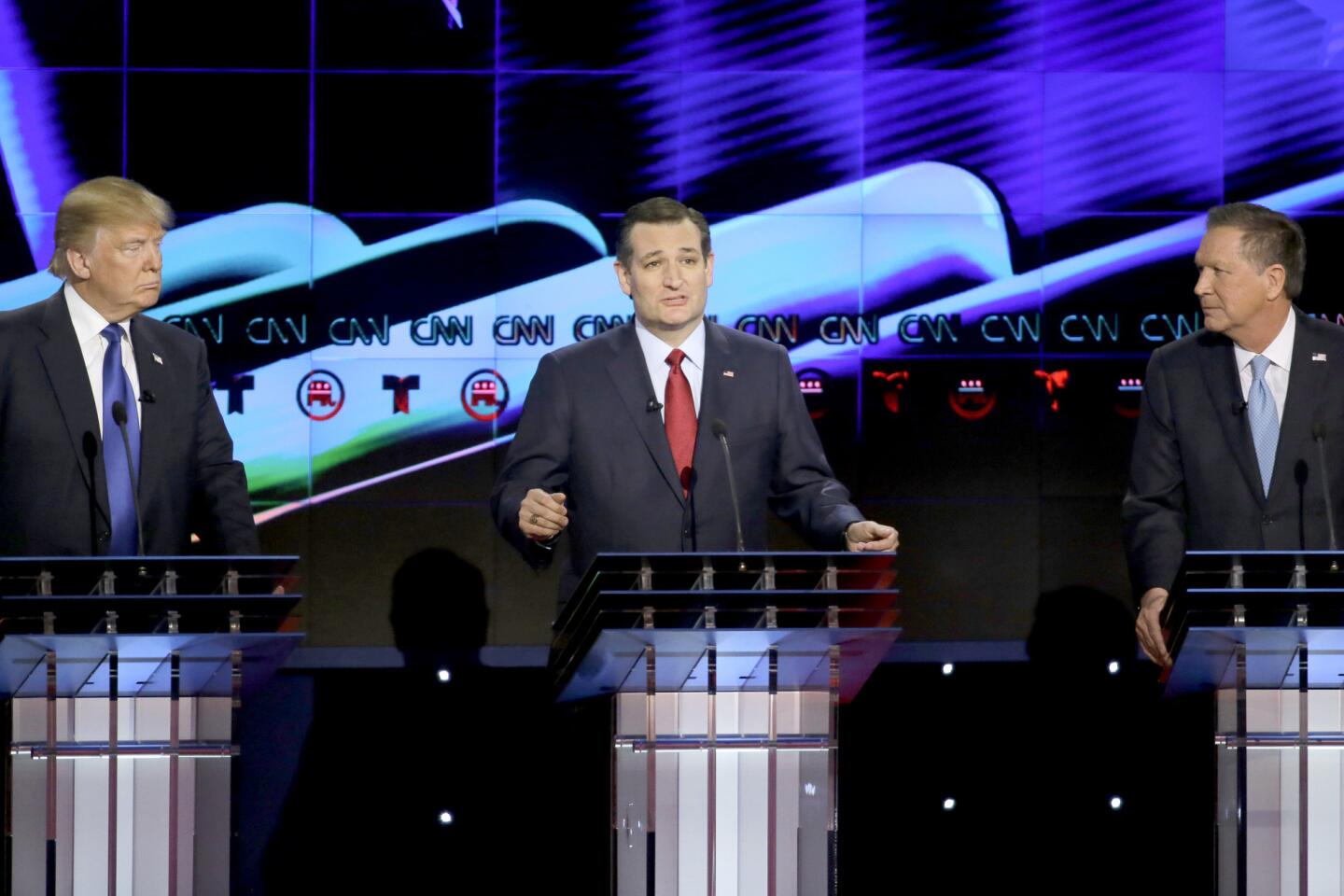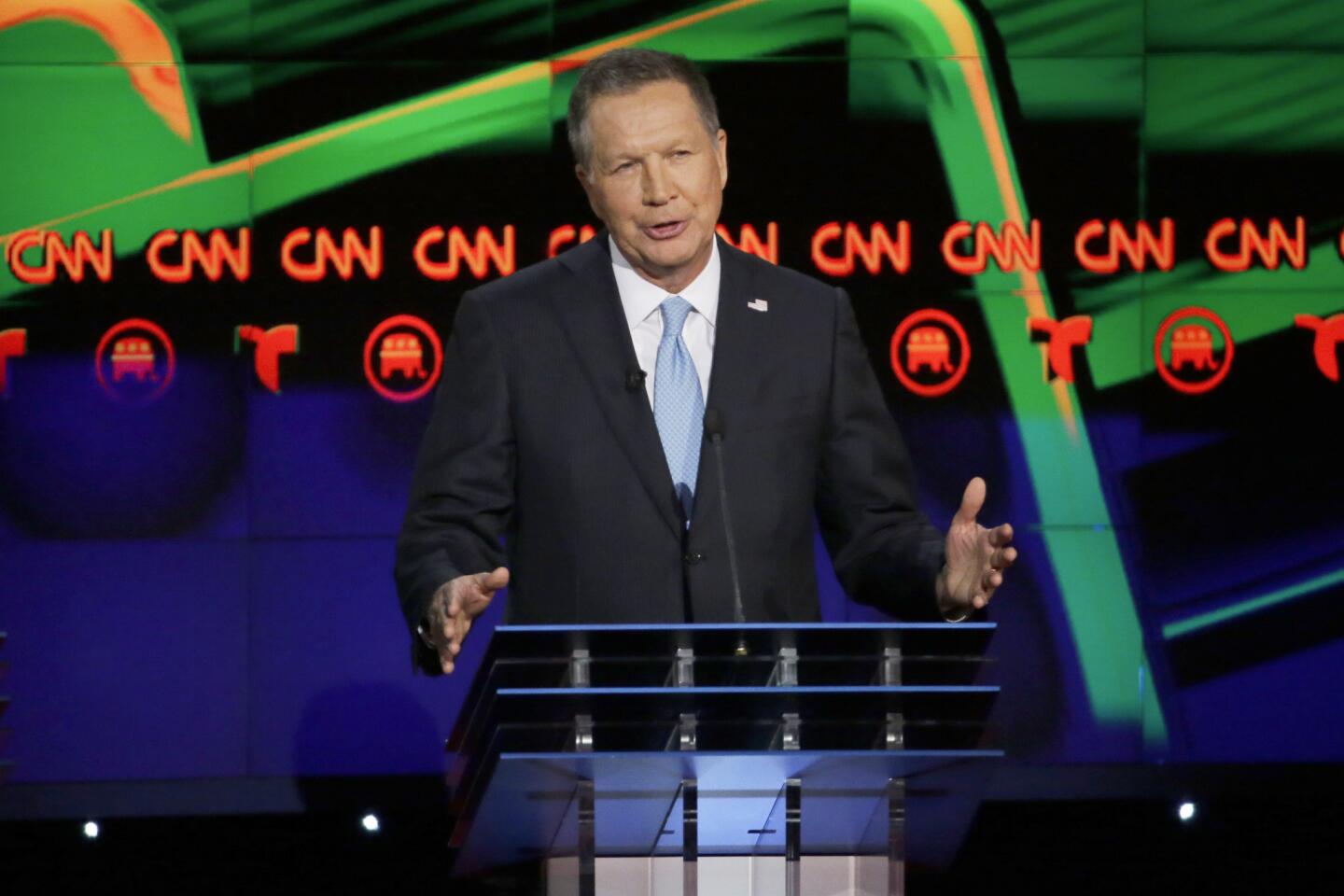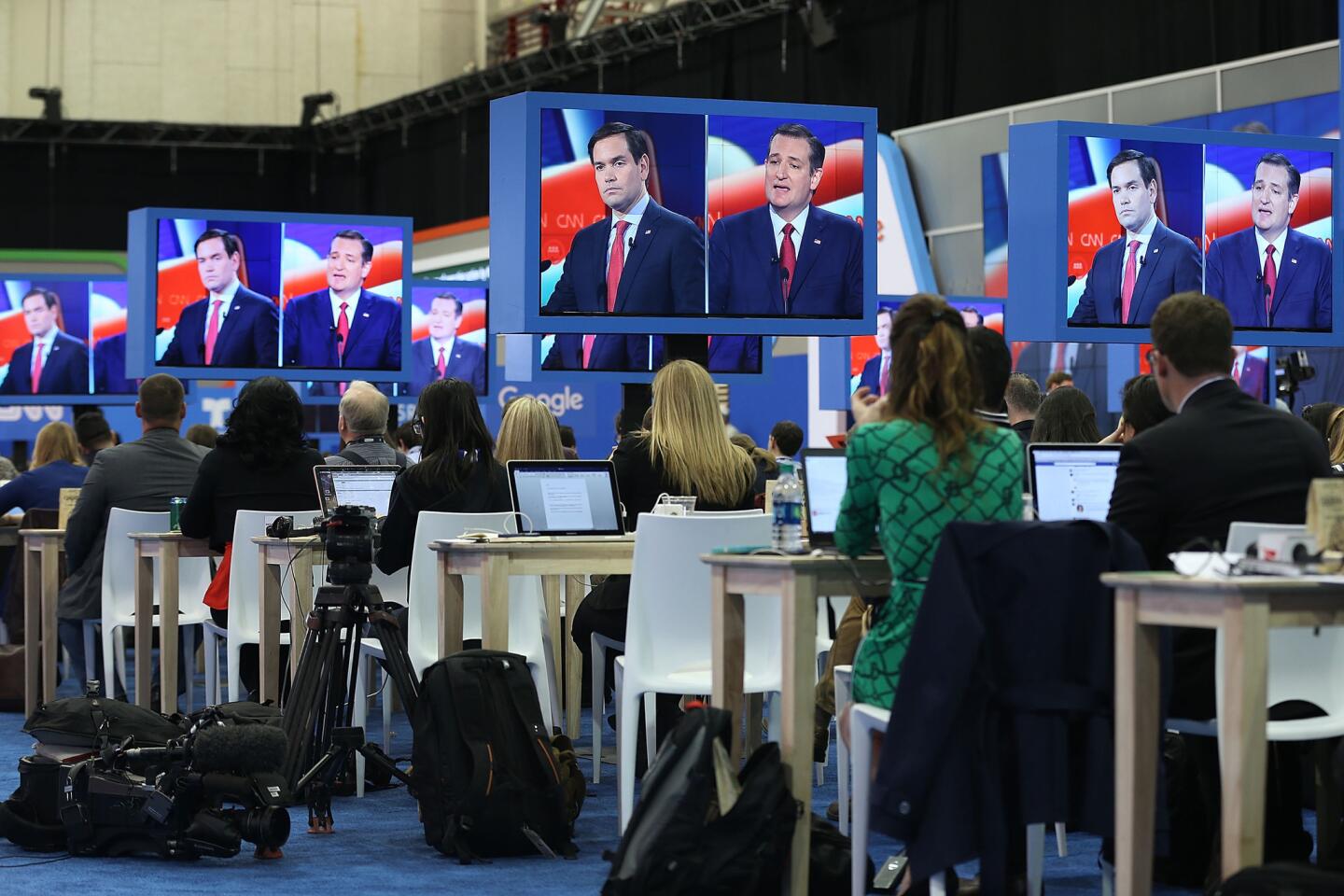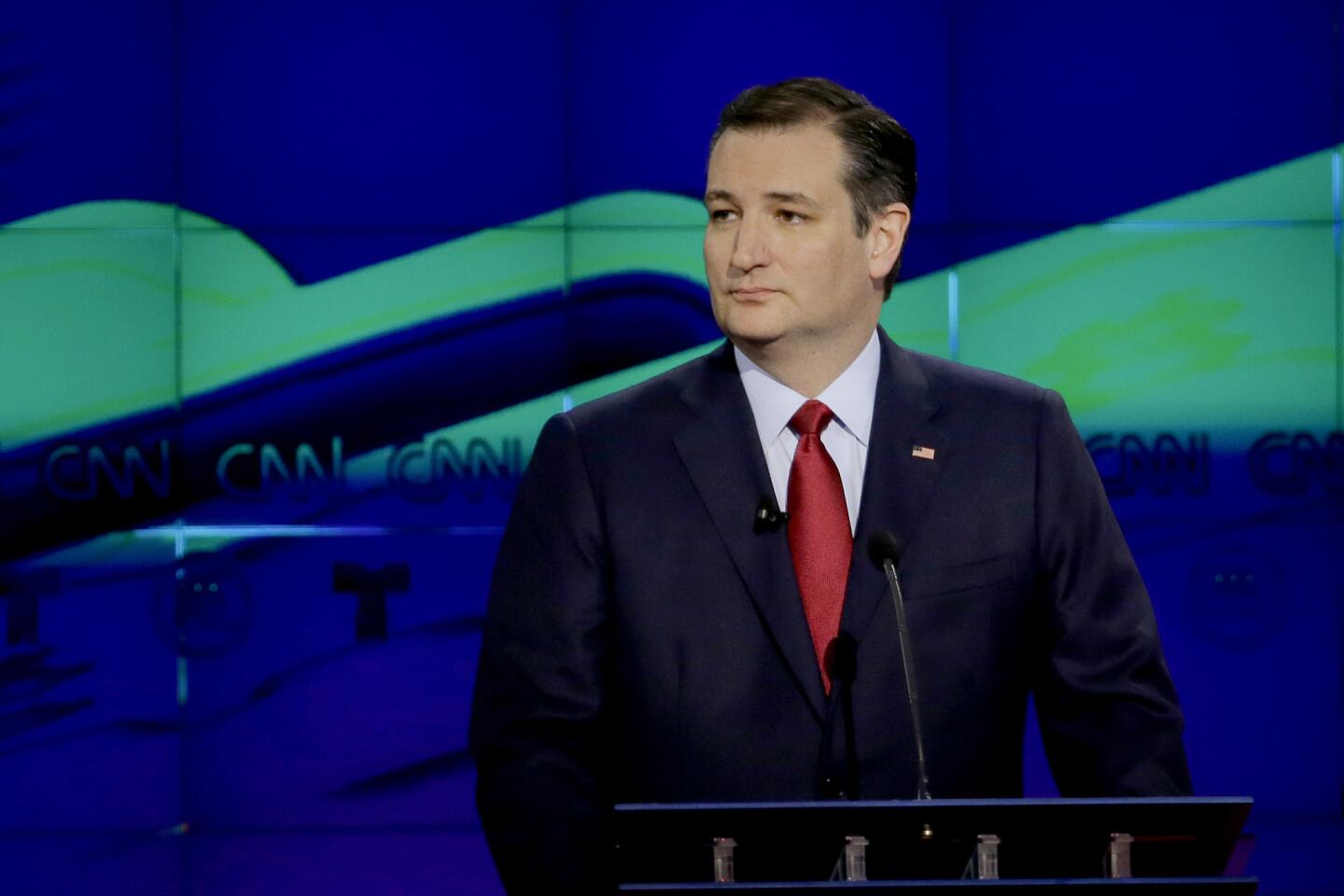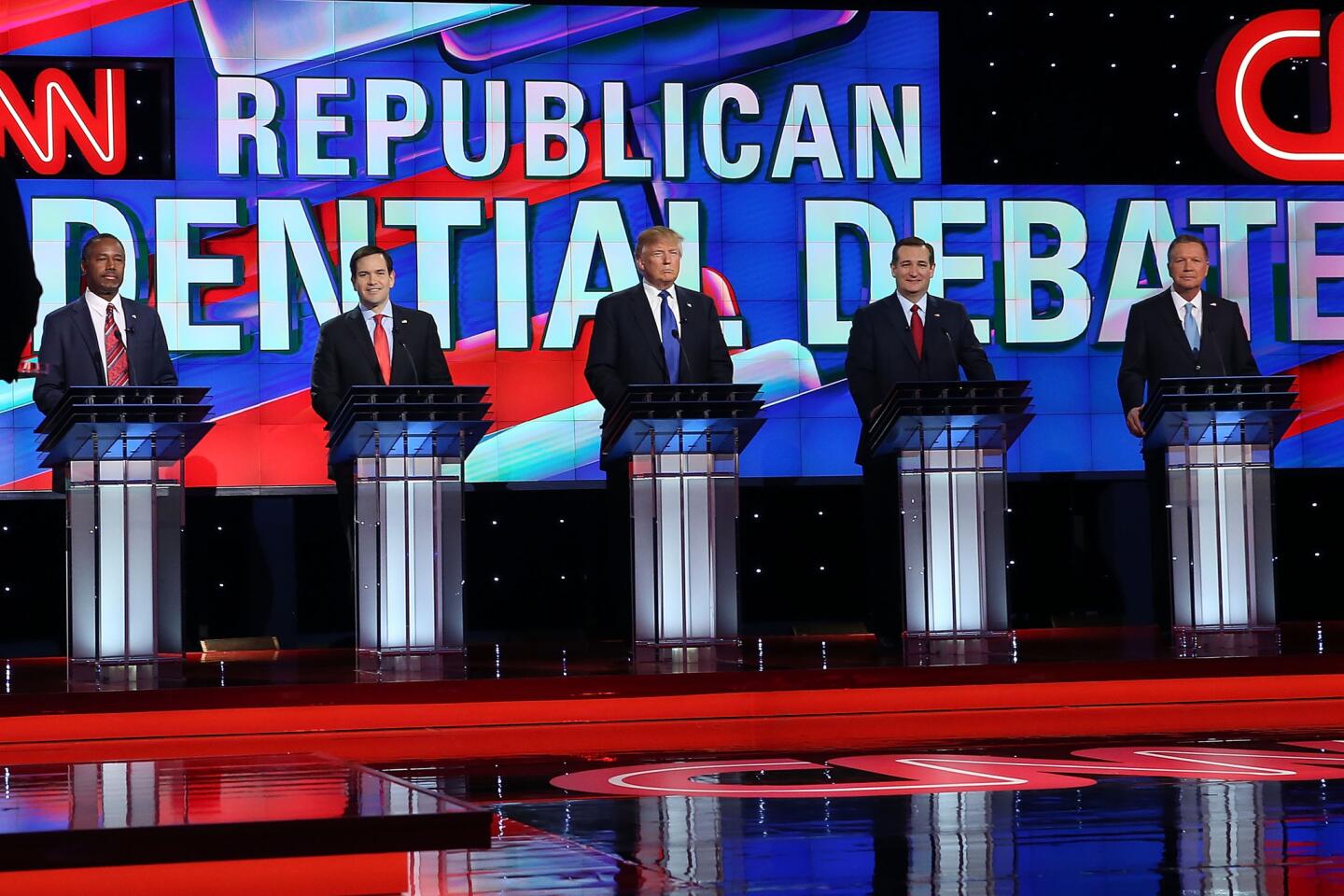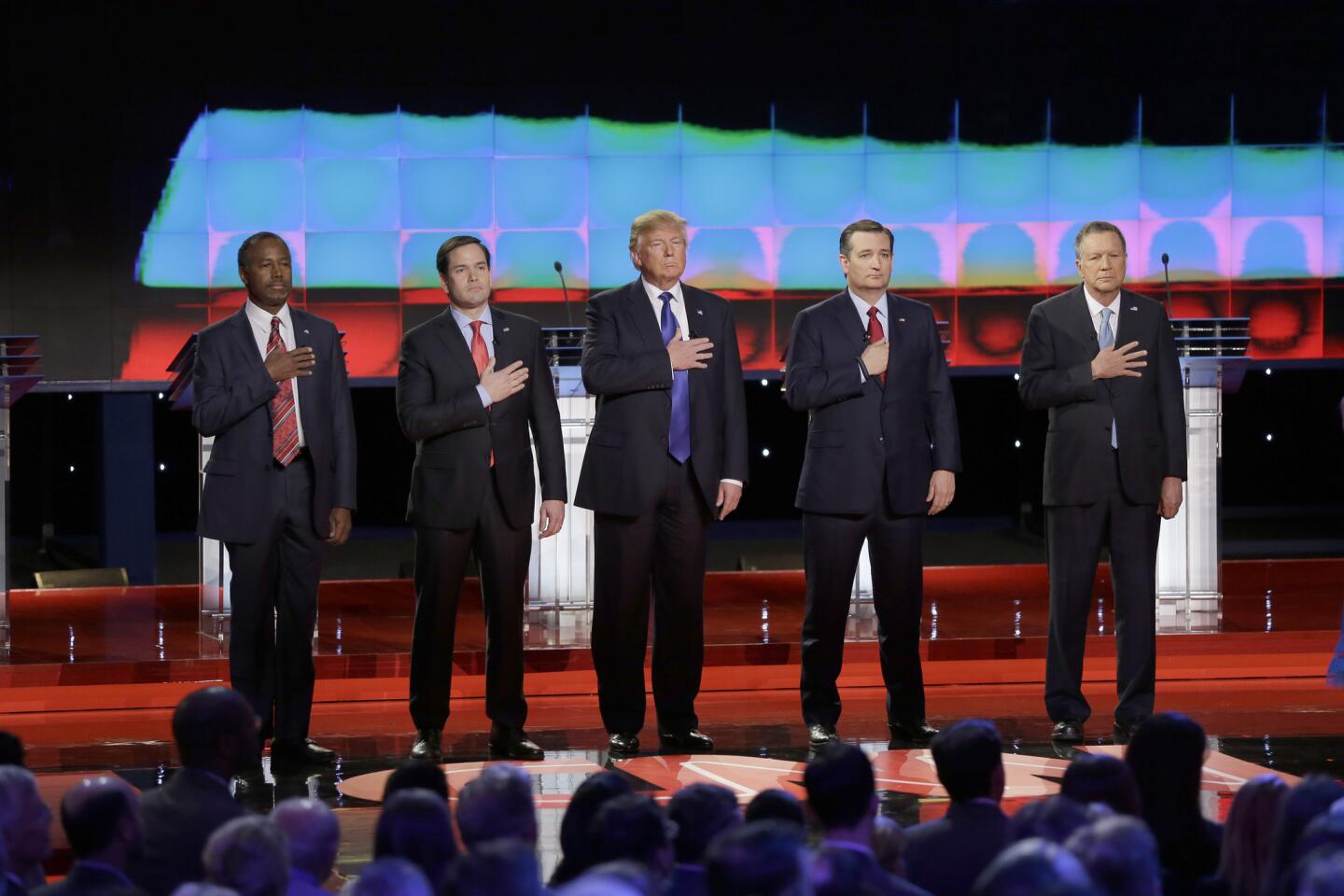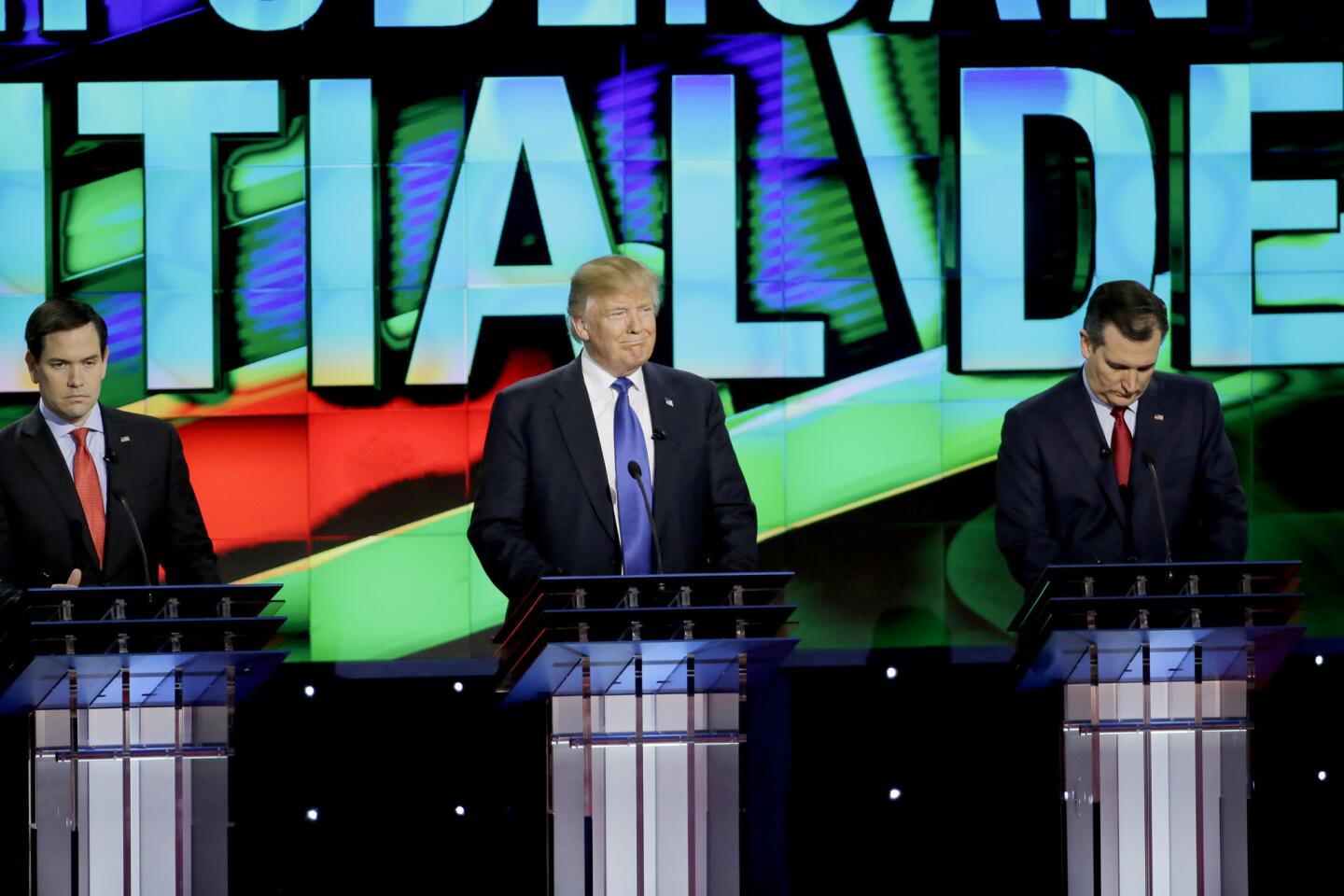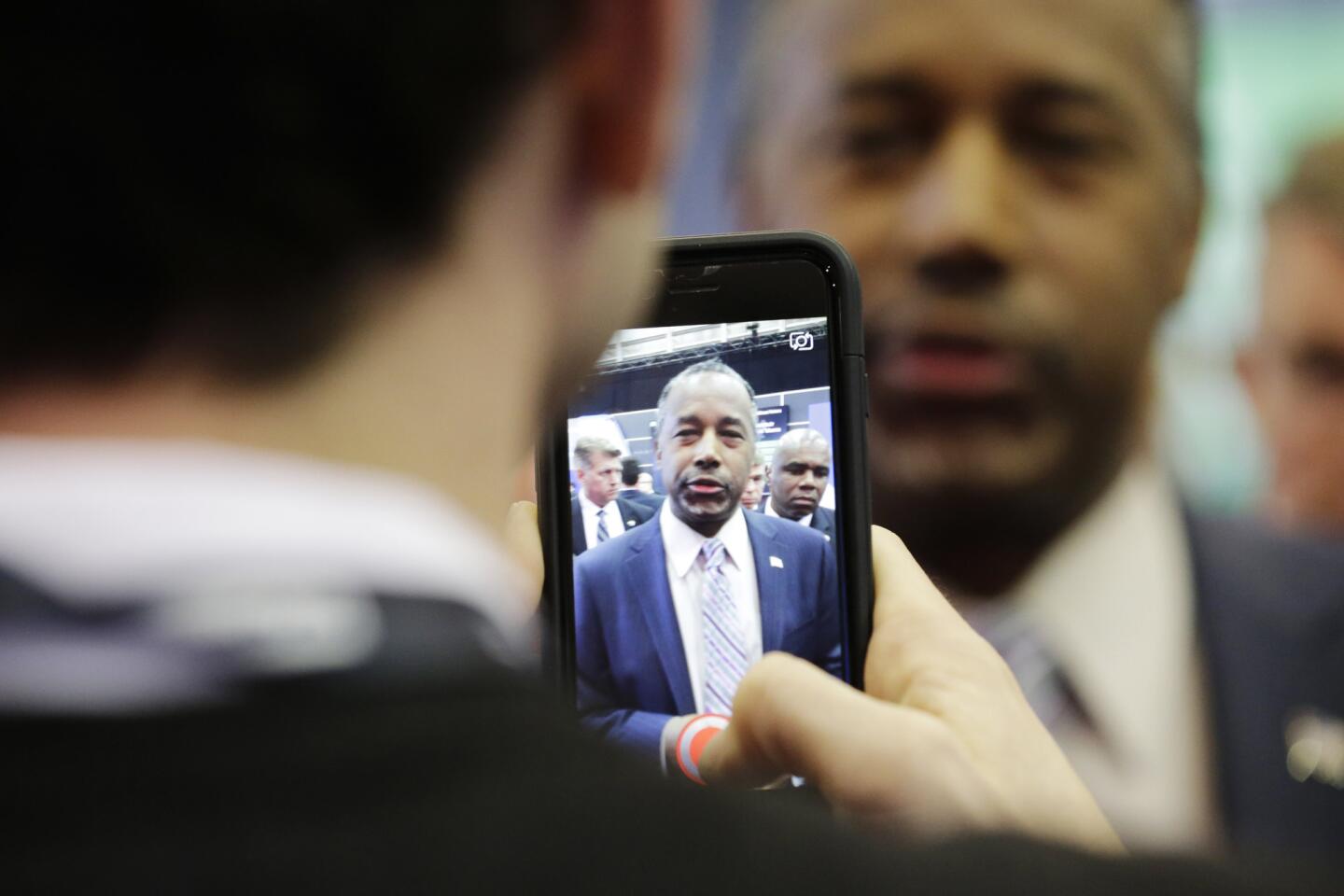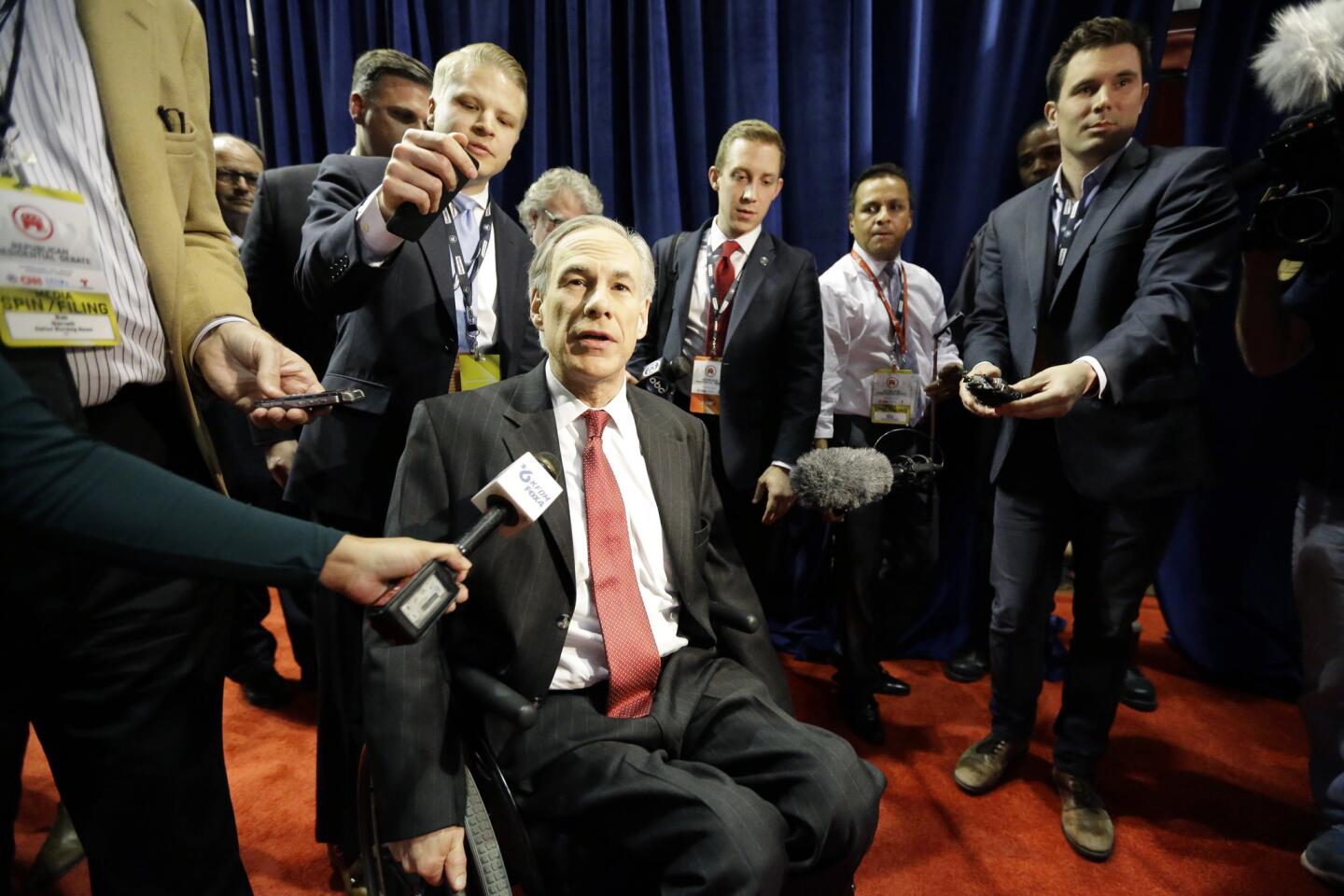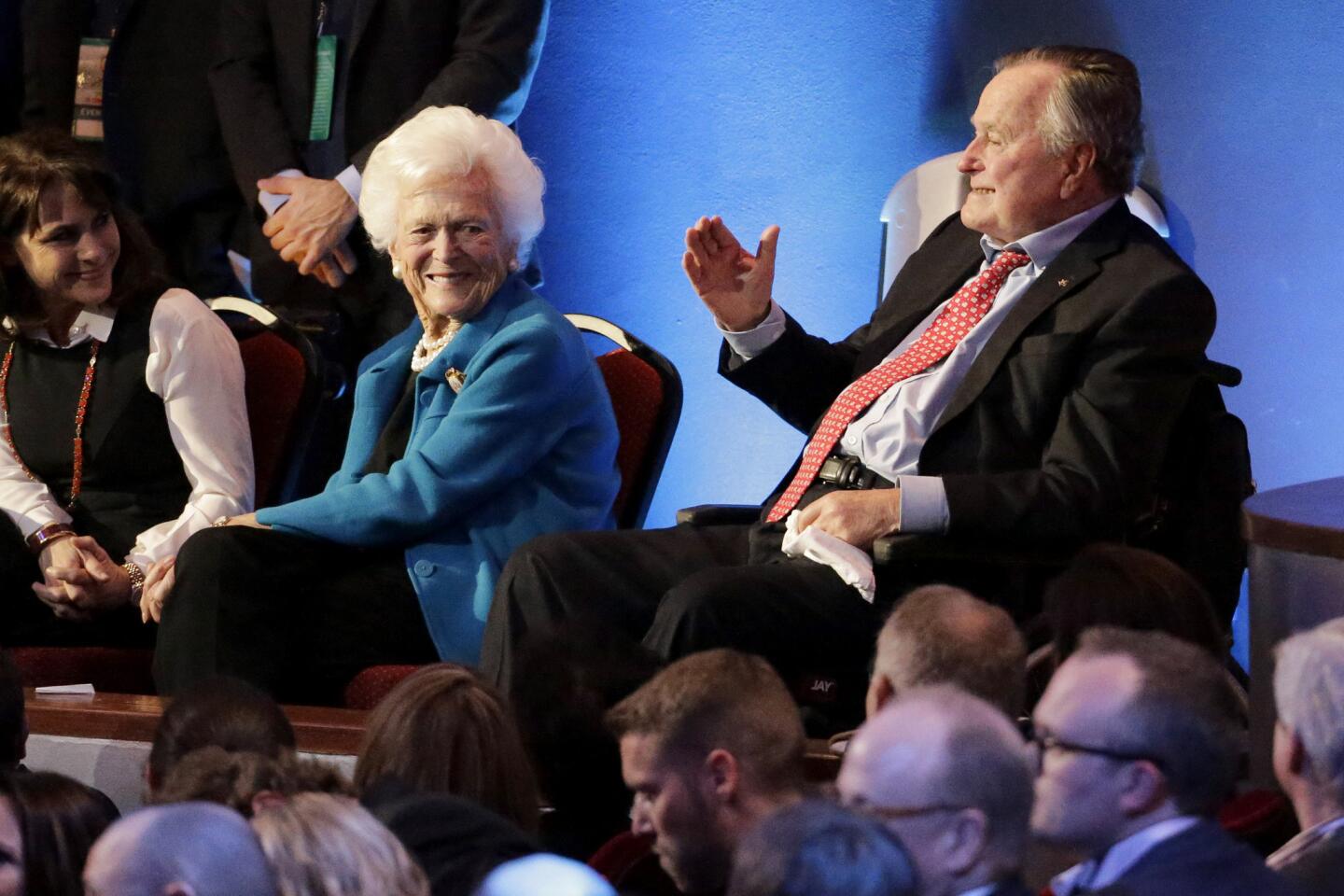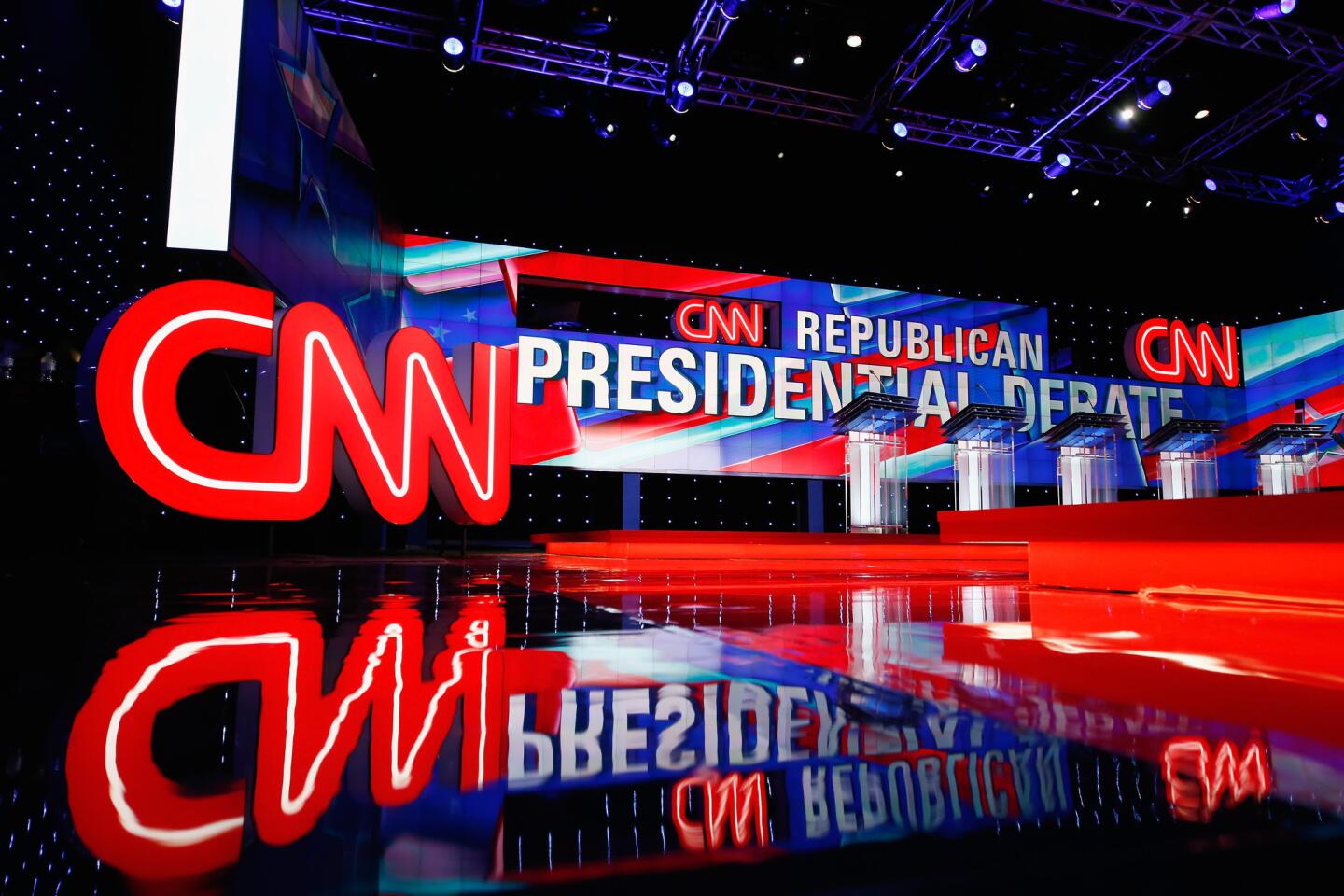Rubio and Cruz make Trump the target in Republican debate
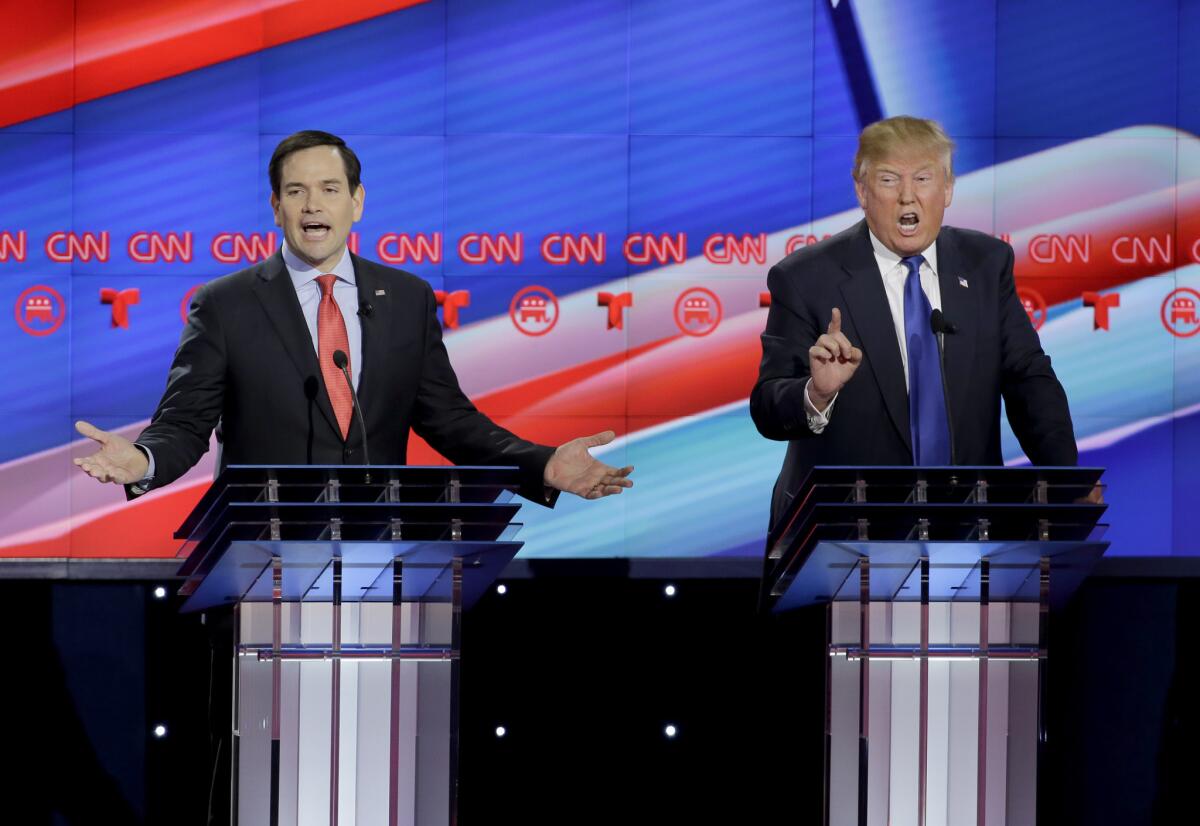
Sen. Marco Rubio, left, and Donald Trump face off during the Republican presidential debate in Houston on Thursday.
Reporting from Houston — Two men trying to topple Donald Trump from his perch atop the GOP presidential field stood on either side of him Thursday night on a debate stage, pummeling him with attacks on his immigration record, his business practices, his thin policy proposals, his loyalty to Israel and his reluctance to publicize his tax returns.
Unlike attacks in previous debates, Sens. Marco Rubio of Florida and Ted Cruz of Texas did not relent, even as Trump called them names and smirked at their critiques.
The senators urged viewers to verify elements of Trump’s record on the Internet. They pointed to his financial contributions to Democrats. They talked over him. They warned he would lose a general election to Hillary Clinton.
It was the kind of sustained attack that many of Trump’s critics have been awaiting for months. It came at a moment of peak desperation for Trump’s rivals, just five days before voters in 12 states head to the polls.
Whether it came too late will start to become known Tuesday.
Trump, as he has successfully batted down previous attacks, fired back, calling Cruz a “basket case” and mocking Rubio for melting down in an earlier debate.
Rubio argued that Trump was a hypocrite on the immigration issue, calling now for the deportation of those in the country illegally but until recently supporting a path to citizenship for them.
“If he builds the wall like he builds Trump Tower, he’ll be using illegal immigrant labor to do it,” Rubio said after Trump reiterated his signature pledge to build a massive wall on the U.S.-Mexico border.
Trump derided the comment as a “cute sound bite,” much as he’s done in nine previous debates when now-former candidates had taken him on. But Rubio was unfazed, and at one point said viewers should see for themselves:
“Google it,” he said. “‘Donald Trump Polish Workers.’”
At another point, Rubio took aim at Trump’s lack of a detailed healthcare proposal to replace Obamacare. Trump, as he has done in the past, said that his proposal was to eliminate “lines around the states” that limit the interstate sale of insurance.
“What is your plan? This is not a game where you draw maps,” Rubio said.
Emblematic of the reversed roles in the debate, Rubio poked fun at himself as he pressed Trump for greater details. As Trump once again said that he would allow sales from one state to another to spur competition, Rubio borrowed a line that had been used against him by Gov. Chris Christie of New Jersey just a few weeks ago in a debate before the New Hampshire primary.
“Now he’s repeating himself,” Rubio said with a grin.
Cruz joined in, accusing Trump of having given campaign contributions to Democratic politicians who supported citizenship for immigrants in the country illegally.
While Trump claims credit for having made illegal immigration a prominent issue in the campaign, Cruz argued that he had been fighting in the trenches on the issue while his rival built an entertainment career.
“Anyone who really cared about illegal immigration wouldn’t hire illegal immigrants,” he said. “Anybody who really cared about illegal immigration wouldn’t be funding Harry Reid and Nancy Pelosi, wouldn’t be funding the Gang of Eight,” he said, referring to the Senate and House Democratic leaders and the bipartisan Senate group that drafted the immigration reform proposal that passed the Senate in 2013.
The candidates also clashed heatedly on a foreign policy issue of importance to many conservative voters — support for Israel.
Trump has recently suggested he would seek to be a neutral arbitrator between Israel and the Palestinians, while at the same time saying that he is a great friend to Israel.
“I’m a negotiator,” Trump said by way of explanation, adding that he hoped he could strike a peace deal but that the Middle East dispute would be the toughest kind of deal to achieve.
Rubio and Cruz both said that the United States needs to be more clearly positioned on the side of Israel and that any suggestion of neutrality was in effect siding with Palestinians.
“This is not a real estate deal,” Rubio said.
The willingness of Rubio and Cruz to engage with the party front-runner stood in stark contrast to the kid-glove treatment both men had afforded him in previous debates. Just weeks ago in the debate in New Hampshire, Cruz had deflected a direct question about whether Trump had the temperament to be president.
The two men also challenged Trump to release his tax returns, piling onto a call made this week by the party’s 2012 nominee, Mitt Romney, who was tripped up by the issue of unreleased tax returns during his own run.
Trump said he would delay release of his returns because he was being audited. And he lashed out at Romney.
“Mitt Romney looked like a fool when he delayed and delayed and delayed, and Harry Reid baited him so beautifully,” Trump said.
But Cruz said the audits Trump faces provide even more reason to let the public judge for themselves.
“I would think that would underscore the need to
release those returns,” he said.
Trump’s rivals also went after him about a lawsuit in which former students at Trump University, a series of seminars set up to teach people about making money in real estate, are accusing him of taking part in a financial fraud. Trump may have to testify this year in the case, which is pending in federal court in San Diego.
Rubio called the program a “fake school” while Cruz warned that the “mainstream media will go crazy with that” ahead of a general election. Trump called the case “nonsense” and promised he would win it.
With 595 delegates at stake in Tuesday’s primaries, Rubio entered the debate under intense pressure from establishment Republicans. Many have lined up behind him in recent days, believing he is the best mainstream alternative to Trump.
Cruz faced a different kind of pressure after a disappointing third-place finish in South Carolina last Saturday, where he failed to capture enough votes from the evangelical and archconservative voters who form the backbone of his support. Several polls show Cruz leading here in his home state, but a few show a tight race with Trump. Rubio’s home state of Florida holds its contest March 15.
When Cruz asserted that polls show Trump would be a bad general-election matchup against Clinton, Trump said those surveys showed Cruz would be even worse.
“If I can’t beat her, you’re really going to get killed, aren’t you?” Trump said.
Until Thursday neither Rubio nor Cruz had mounted a sustained attack on Trump, allowing him to emerge relatively unscathed while they tried to win the mantle as Trump’s most formidable challenger.
Indeed, both Rubio and Trump had been focusing their attacks on Cruz, accusing him of lying and resorting to dirty tricks.
But Trump’s victory Tuesday in the Nevada caucuses, his third in the four early state contests, triggered a new urgency not only from his rivals but the party establishment.
Ohio Gov. John Kasich and retired neurosurgeon Ben Carson seemed mostly bystanders in the debate amid the sniping of the three leading candidates.
Carson opened the debate with a plea to his rivals to keep the debate civil.
“Marco, Donald, Ted, John, we will not solve any
of these problems by trying to destroy each other. What we need to do is be looking for solutions tonight,” he said.
Kasich at one point cited the disappointment of a young girl at one of his campaign events: “I don’t like all this yelling and screaming at the debates.”
Neither appeal seemed to have much effect.
michael.memoli @latimes.com
noah.bierman @latimes.com
molly.hennessy-fiske @latimes.com
Hennessy-Fiske reported from Houston and Bierman and Memoli from Washington. Times staff writers Lisa Mascaro in Washington and Seema Mehta and Michael Finnegan in Los Angeles contributed to this report.
MORE ON CAMPAIGN 2016
Delegate tracker: Who’s winning the race to the nomination?
Desperate towel-snapping as GOP candidates try to take down Trump
To reach minority voters, Clinton talks white privilege. Sanders has another way...
South Carolina black voters say they know Hillary Clinton well enough to pass on Bernie Sanders
More to Read
Get the L.A. Times Politics newsletter
Deeply reported insights into legislation, politics and policy from Sacramento, Washington and beyond. In your inbox three times per week.
You may occasionally receive promotional content from the Los Angeles Times.
